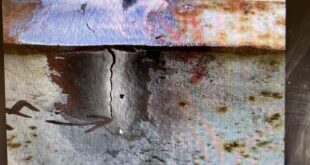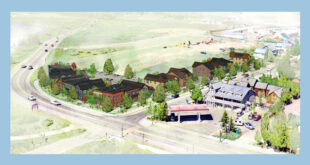Full-time classes to start this fall
Local educators Sue Wilson and Melissa Neuner are going to attempt to bring another shade of education to Crested Butte. The Studio Art School owners are taking their business beyond pottery and dance like Celebrate the Beat, and opening a private school that will use the visual arts to engage students’ interest in learning.
The Studio Art School was an idea that Wilson and Neuner hatched as a method of getting kids interested and confident in their ability to learn, while at the same time reducing the student to teacher ratio.
“This has always been part of Sue’s and my long-term plan when we started this business,” Neuner says. “Both of us are educators and we believe in the philosophy of teaching that we’ve come to acquire over the years.”
Part of that philosophy came from four years Wilson spent teaching at Maine’s Center for Teaching and Learning, which is “dedicated to the development and dissemination of authentic, rigorous and joyful methods for teaching across the curriculum,” according to the center’s website.
The “authentic” learning experience is accomplished, Wilson says, when kids learn about writing through the act of writing itself, instead of from theories in a textbook.
“It allows kids to learn through real and original work that they create. We read, we write, we share and we rewrite,” Wilson says. “They learn about craft and conventions through their trial and error.”
Wilson said in a Studio Art School classroom, an entire class wouldn’t be held up listening to a lecture on a subject that the majority understands. The structure would allow a student to get individual instruction while his or her classmates continued with the lesson.
As a result of the structure, Neuner and Wilson say the system will be grade-less. Students’ evaluations will be based on a “portfolio” that holds examples of their work and proficiency so “each child is assessed at his or her level,” Wilson says.
“As educators we know what the standards are and what kids need to prepare for,” Wilson says. “At the beginning of each year there will be a certain amount of expectations and the teacher will know how far she needs to get each child.”
Wilson also says there are advantages to allowing a student to grow through the grades with a familiar teacher who knows the student’s style and pace of learning from year to year. Maintaining that attention to detail means keeping classes small. Both women agree that 10 students would be ideal.
“It’s a learning community,” Neuner says. “That community aspect is where kids are not only building confidence for themselves and what they’re capable of, but what the other kids in the room are capable of, because without that we wouldn’t have a community of learners. It’s really what the whole thing is founded upon.”
The teachers also feel that the Reading and Writing Workshop approach that will be employed in the classroom will allow kids to explore the depths of their own understanding and take subjects as far as each student can.
“How far you take [the subject] from the lesson is different from how far another student is going to take it. That’s the difference—that’s the individualized part. If we were studying Greece, the kids would pick an aspect of that that they would want to learn.”
And while the core curriculum at the school will be similar to what students are learning in public classrooms, Wilson and Neuner will take students on an artistic path to reach a similar end.
“Obviously the name of this is the Studio Art School,” Neuner says. “Obviously the creative, right-brained-thinking piece is a huge part of why we’re doing this. There’s a lot of research out there suggesting that brain-balanced education is very important and a traditional school is just by its nature very left-brain-centered.”
Neuner thinks the result of a more creative and rounded approach to education will be kids who are able to think about problems in abstract ways. Through nurturing independence and providing the tools students need, the method will create lifelong learners.
“The problem-solving piece and the ability to think outside the box are all things that are becoming more and more valued in the global marketplace,” Neuner says.
Asked why they are starting the program now—as enrollment at the Crested Butte Community School drops and just months after the building that once housed the Crested Butte Academy was torn down—Neuner says, “I think with Crested Butte being such a small community, we get the chance to really get to know kids around here. Sue and I are both just passionate teachers and when you interact with kids on that level at Teocalli Tamale, or wherever, we know that the kind of program we can provide for them at school is going to be groundbreaking and amazing for them and we want to give that to this community.”
Because of the approach the teachers are taking at their school, interested families will go through an application and interview process, because the teachers “want to sit down with parents and make sure they understand our philosophy and what we expect of them and their children. We want to make sure they understand the philosophy and they can support it,” Wilson says. “We don’t want there to be any surprises.”
In the long-term, Neuner and Wilson hope the school will be able to support students at the fifth to eighth-grade levels. “We’ve been approached by many parents of kids going into fourth grade, so we may start as a fourth through sixth grade and then grow with the kids,” Wilson said.
The teachers hope to open the doors to the school this fall. The tuition for the program is $3,650. Interested families must contact Sue Wilson at 275-6339 to schedule a meeting to begin the enrollment process for their child. Parents and children will be interviewed separately to determine their levels of interest and to ensure that families truly understand the school’s philosophy and approach, Neuner says.
 The Crested Butte News Serving the Gunnison Valley since 1999
The Crested Butte News Serving the Gunnison Valley since 1999



